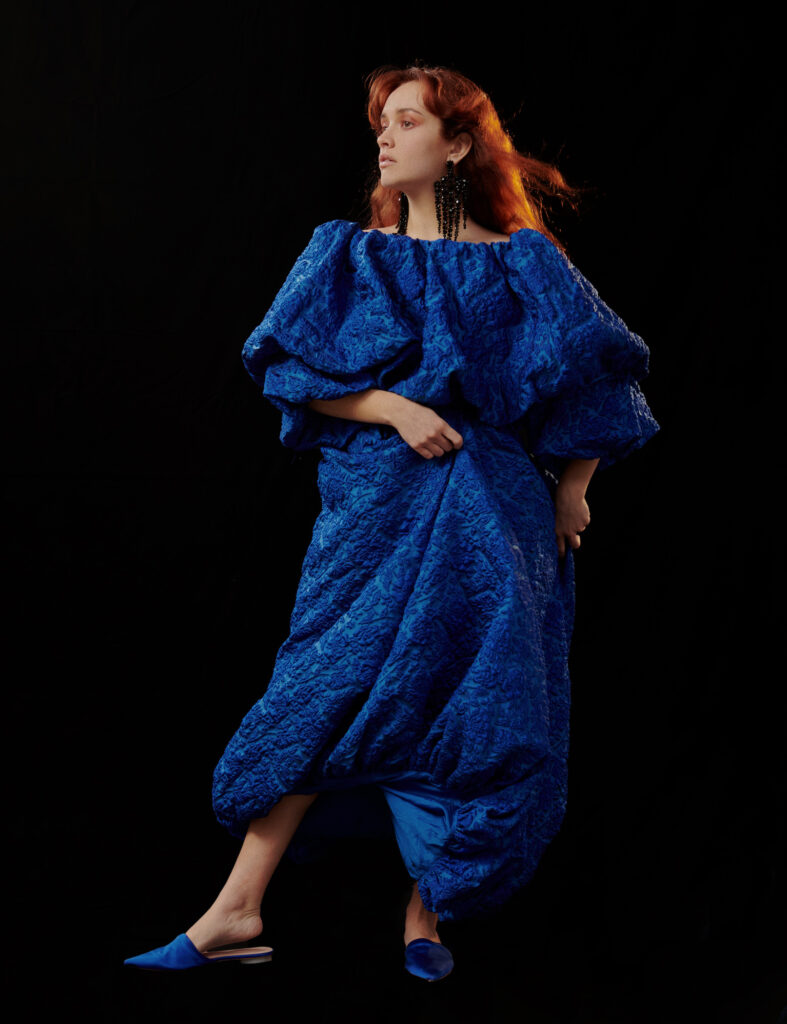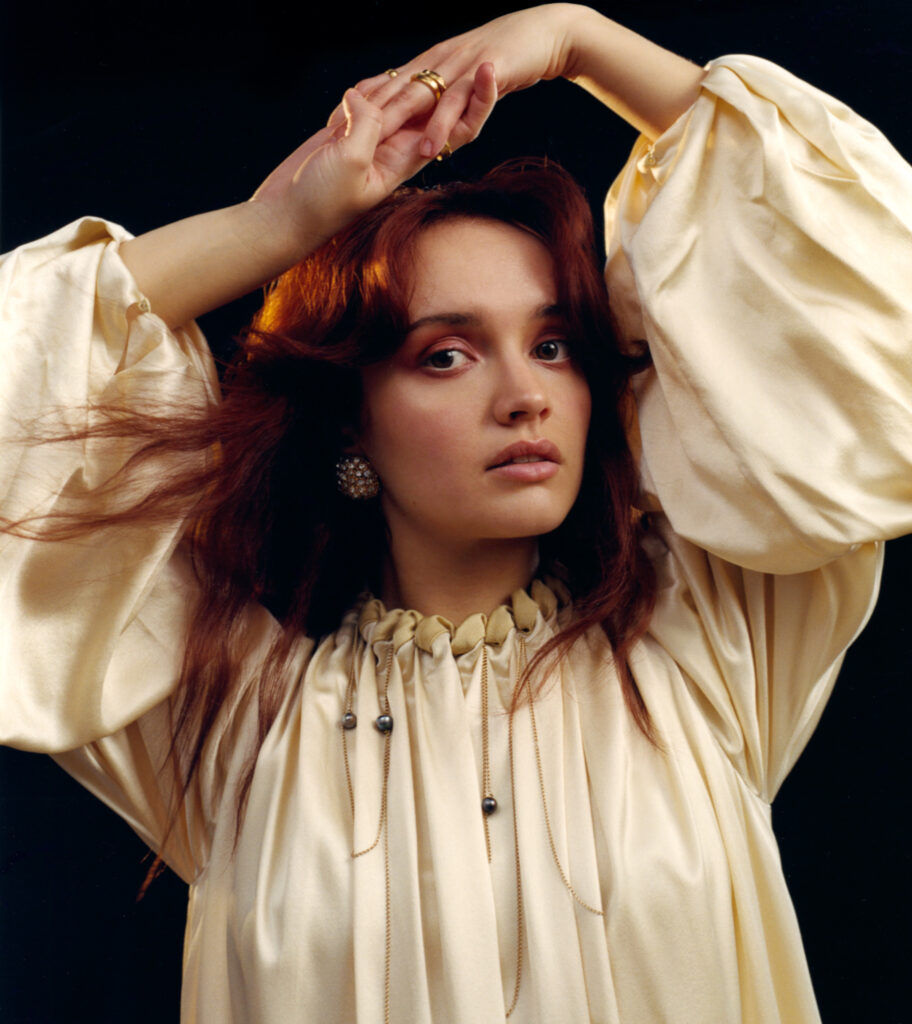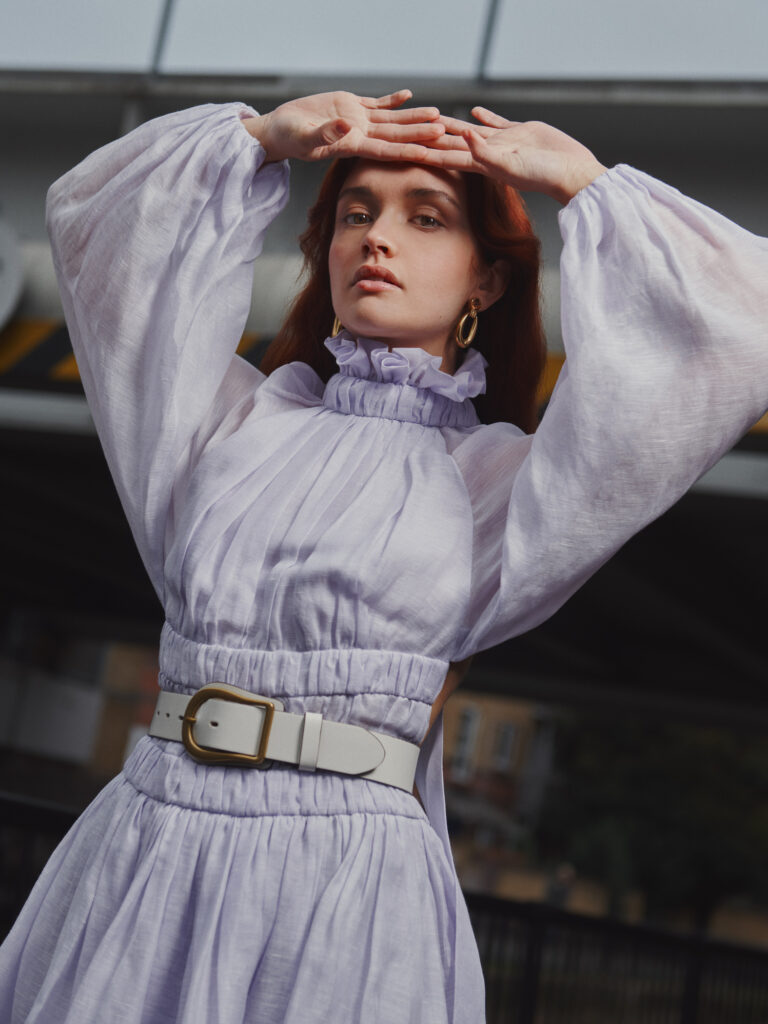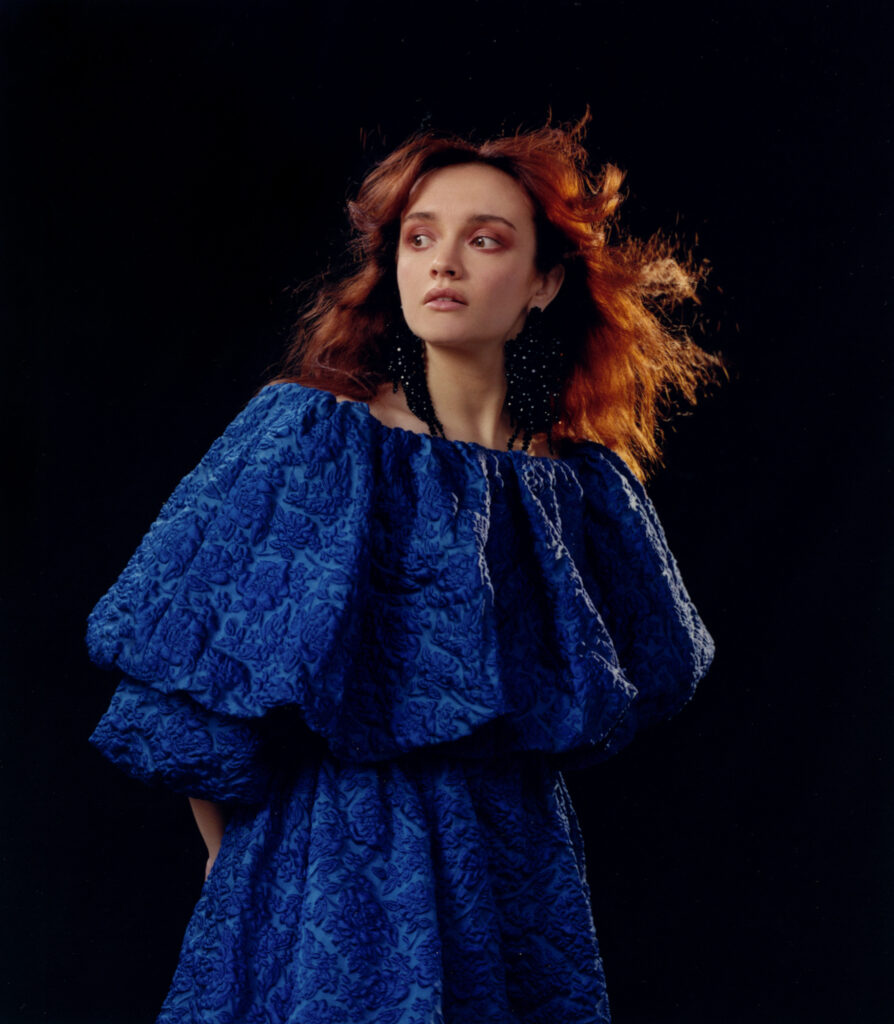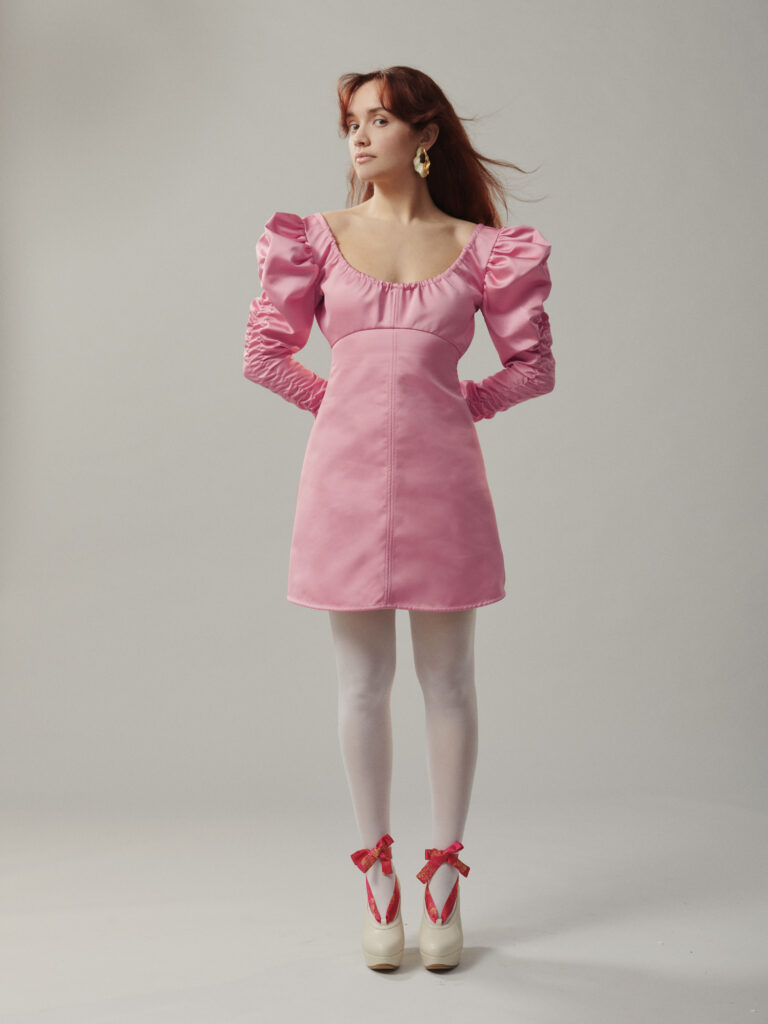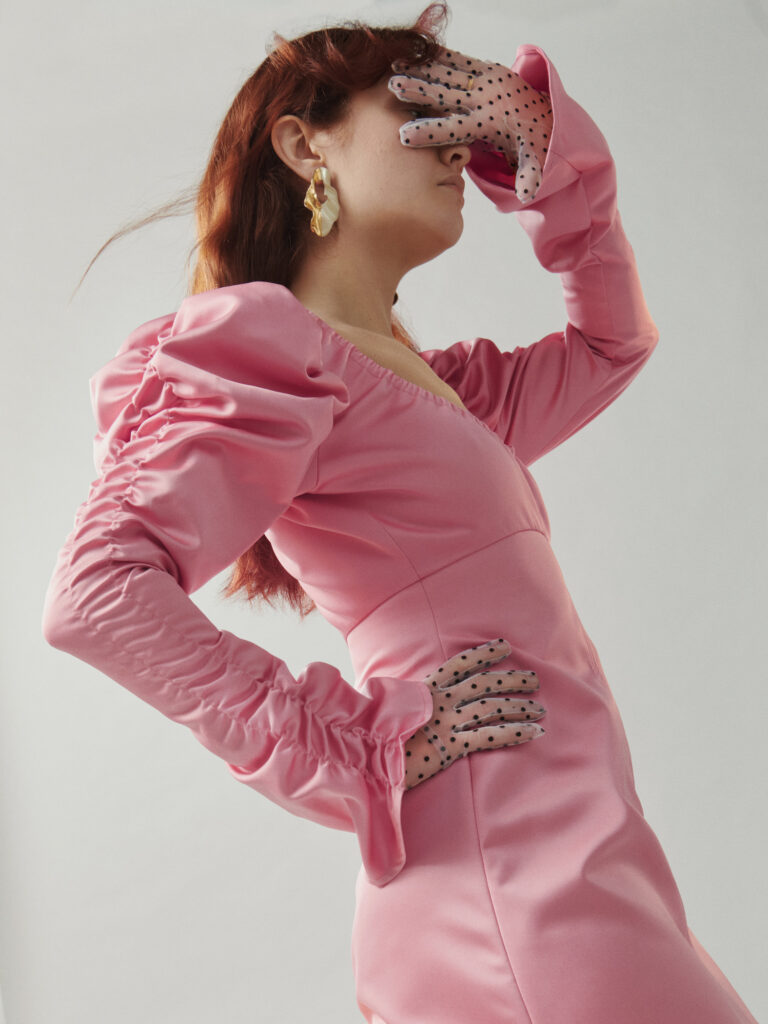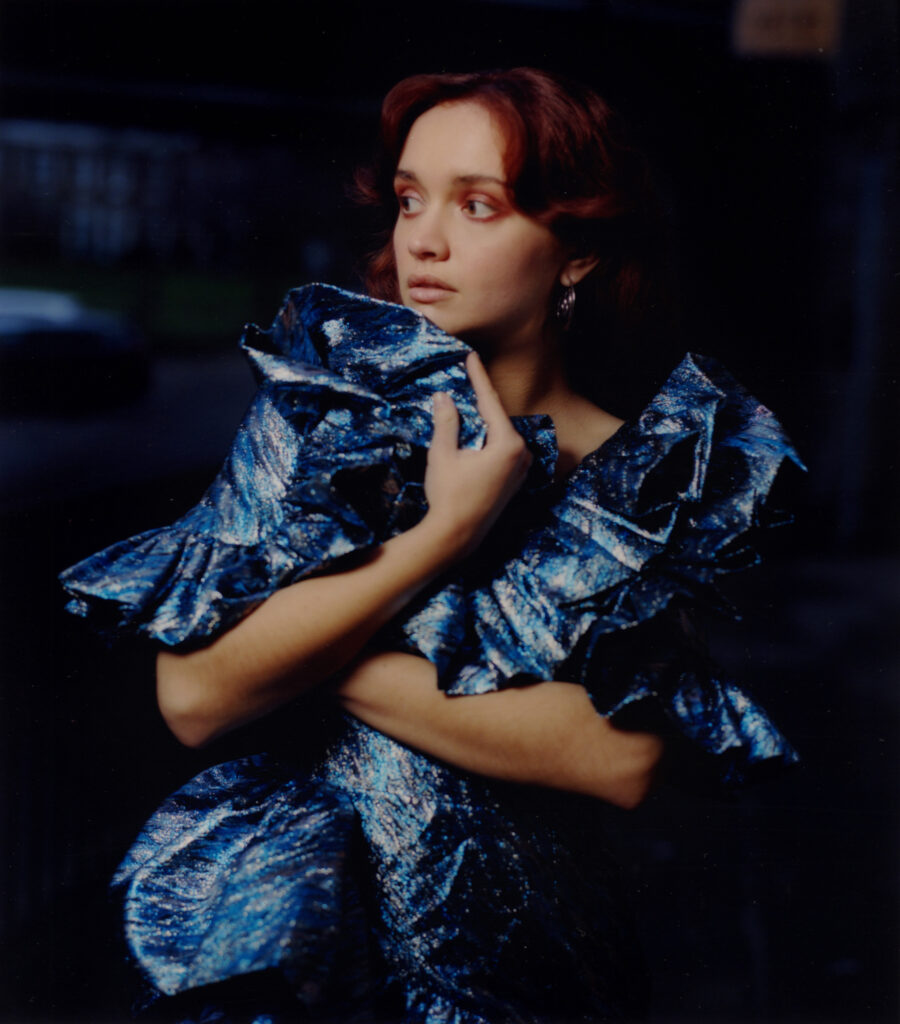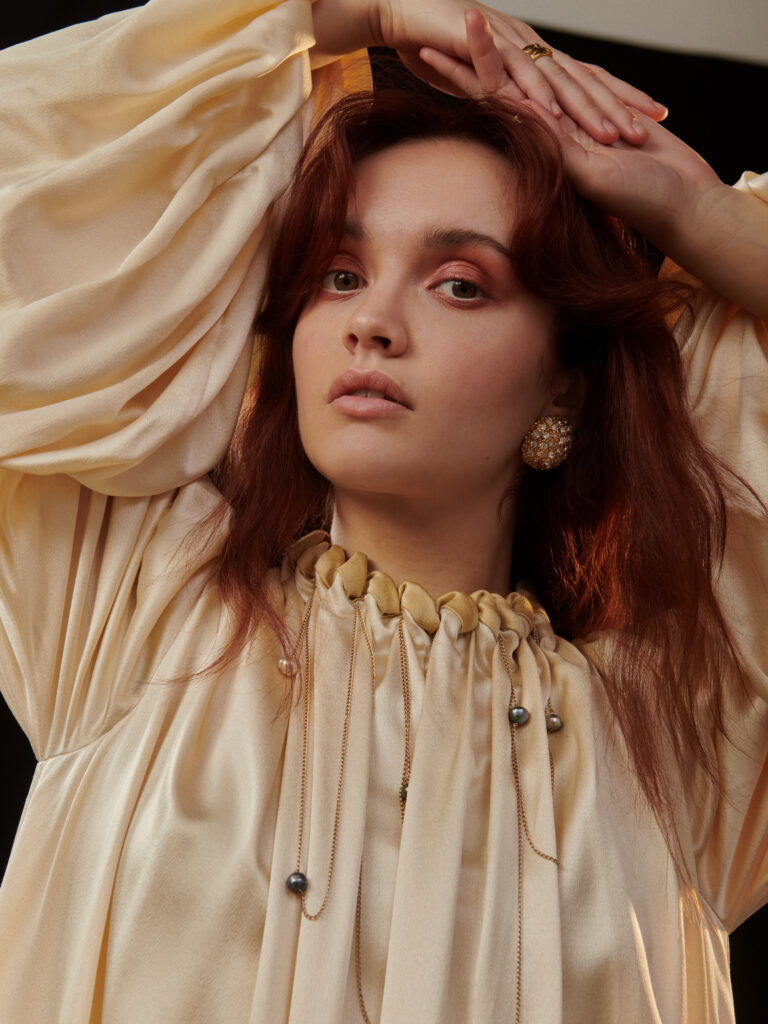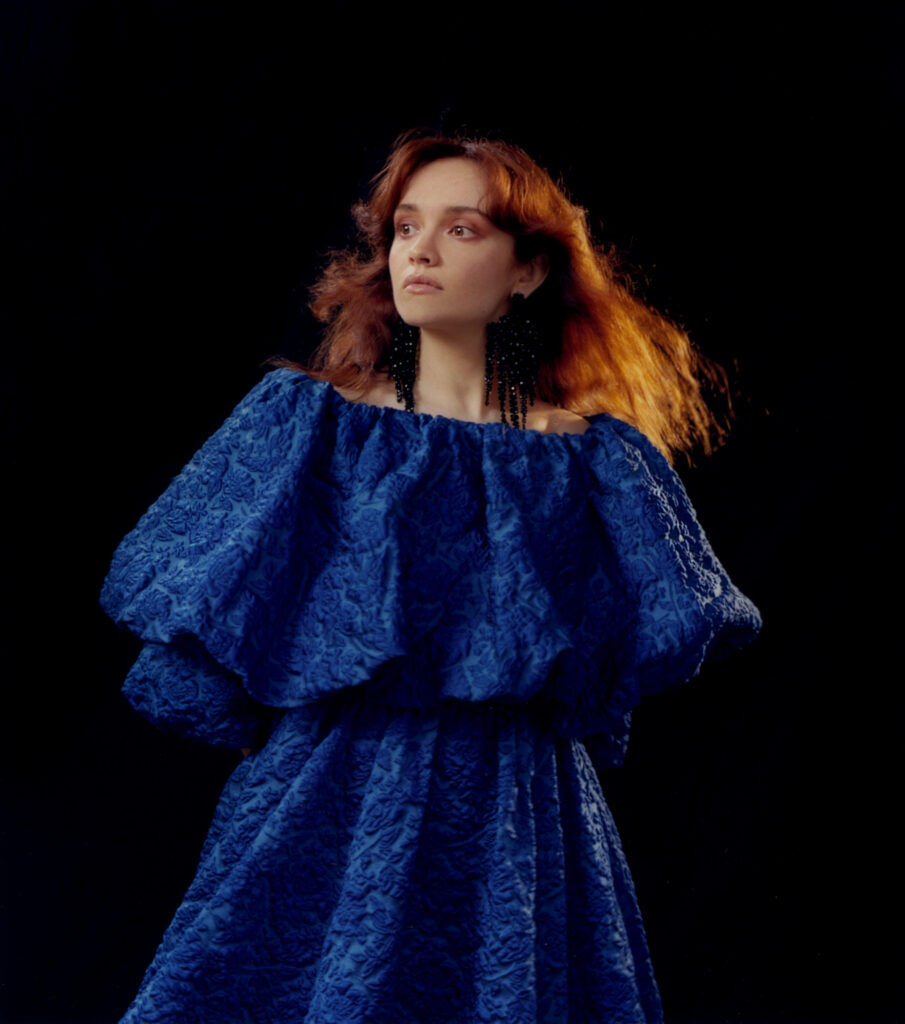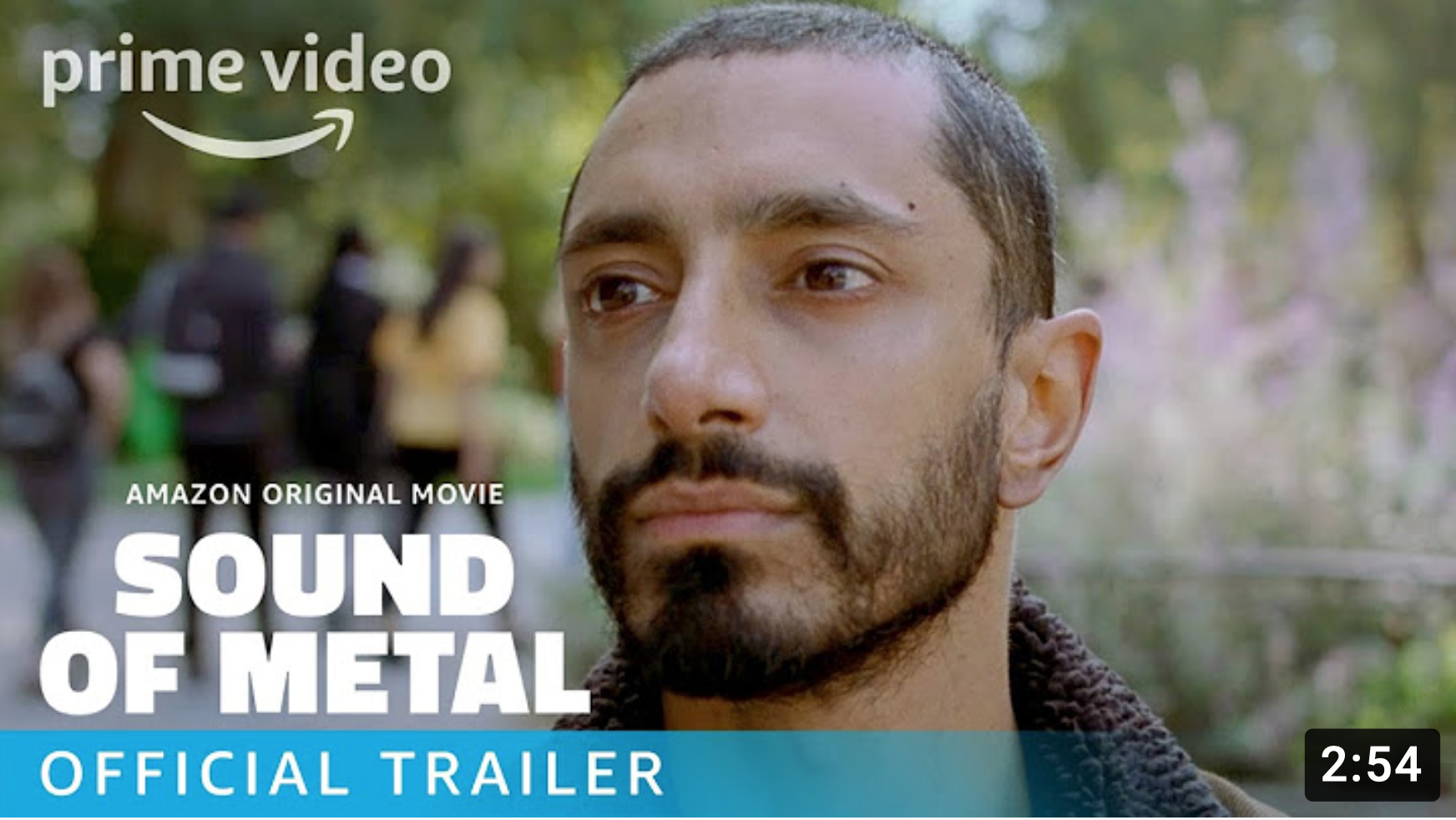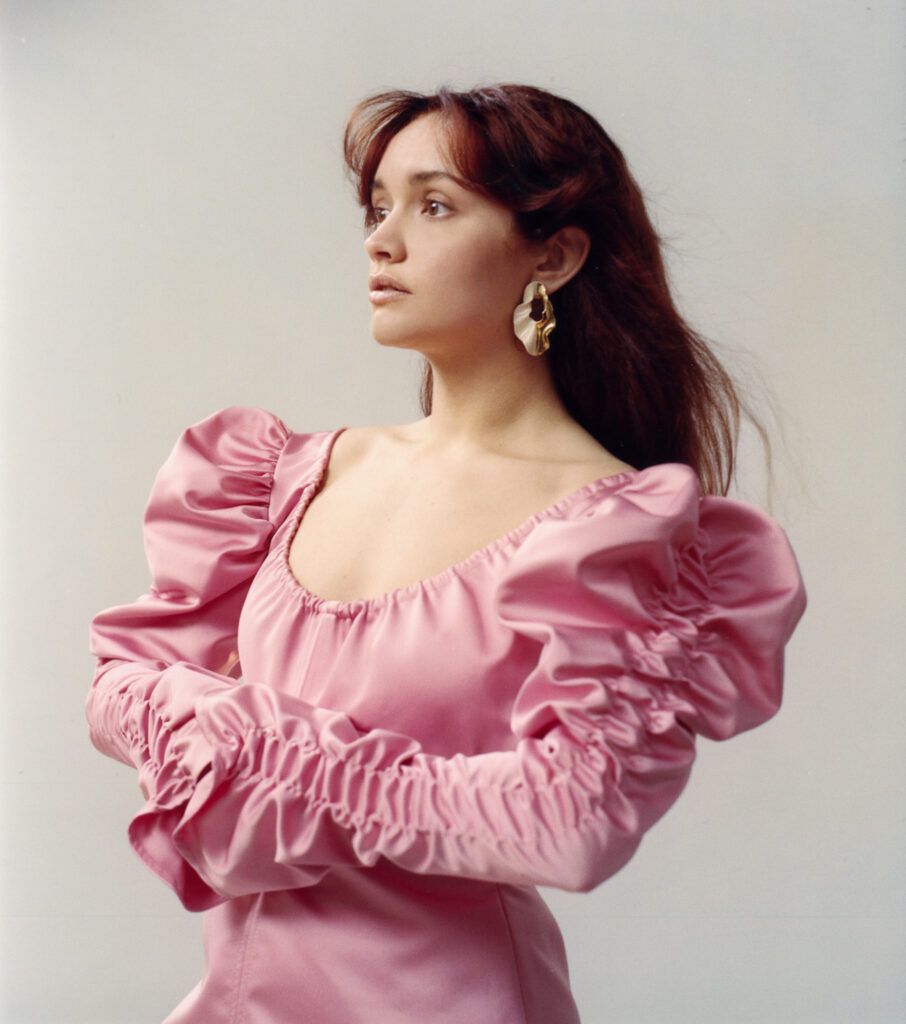
Interview by Laura Albert
Like many fans of indie film, Olivia Cooke first caught our attention as the titular “dying girl” of director Alfonso Gomez-Rejon’s Me and Earl and the Dying Girl. She pulled off the impossible, being the tragic mysterious outsider without melodrama, and her genuine humor and warmth carried the film. Olivia has a knack for winking at us, and we forget the camera capturing her while her character lives or endures, as her Becky Sharp does with epic pith in the series Vanity Fair. With the recent Sound of Metal, Darius Marder’s debut film, Cooke again defies cliché, in a small but striking portrait of a woman choosing her life, centering herself when the core echo-location of her existence devastatingly disappears. Strength, independence, quirky complexity, funniness, and a deep resilience are all the qualities that no doubt led to Olivia’s being cast in HBO’s next go at Game Of Thrones. And with her sly sidelong gaze, she no doubt will keep us enthralled.
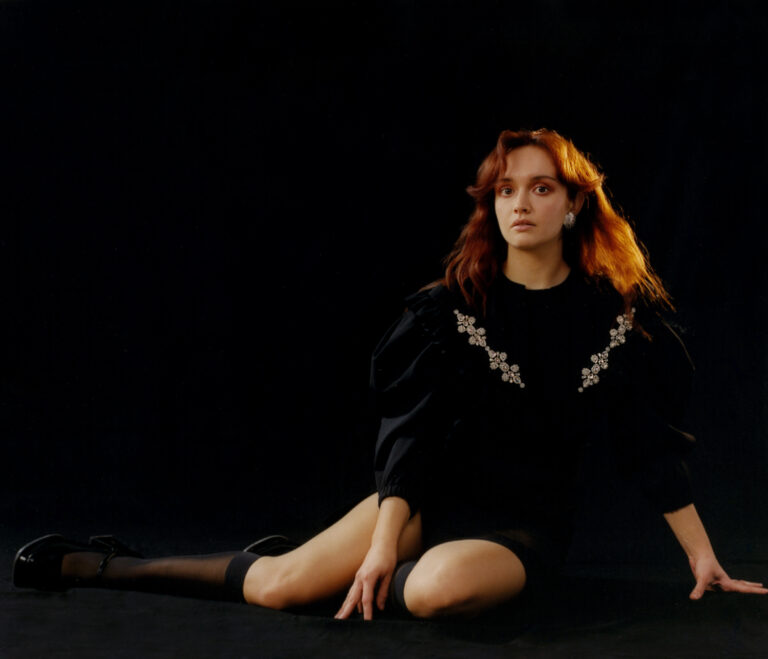
What made you decide that Lou in Sound of Metal was a character you wanted to play? Have you known people like her?
It was more the story itself and the world that Darius wanted to tell which made me want to play Lou. To exist in a place that I hadn’t experienced before but could imbue the character with traits and emotions that either I have known or known someone else to experience. This electric, hair-raising sphere that they inhabit when they’re onstage, contrasting with this quiet, deliberate microcosm they share when in their airstream, was a relationship I was really keen to explore. All that coupled with the fact that this film explores deaf culture in a way that I have never been privy to, nor have seen a film like it. It just felt very important to be a part of this film in whichever way possible.
Sound of Metal is Darius Marder’s debut film. How was the experience of collaborating with Marder? What did you take, as an actor, from working with him?
It was an incredibly fluid, collaborative experience. Darius requires complete trust and you sort of have to go with it, let go and give yourself to the performance. We shot chronologically which helped Darius create an environment that felt really authentic and real. We had a two or three takes, each asking the actors to be completely “in it” at all times. But working this way is a dream in the sense that you’re not constantly questioning, “where have I just been?”, “what emotional state am I in?” It was as close to real life as we could possibly make it.
The film explores heavy subjects such as drug addiction and illness and separation. But it also has a bright side and a hopeful message towards the end. Did portraying a multi-layered character such as Lou start impacting your own life, during the shooting or afterward? Was it hard to let go of?
Slightly. I mean, you’re always bringing a character to life through the prism of you and your own lived experiences. But sometimes within those extreme, emotional scenes you do feel rather vulnerable afterwards, as your body doesn’t understand that it wasn’t real. It’s a weird fucking job.
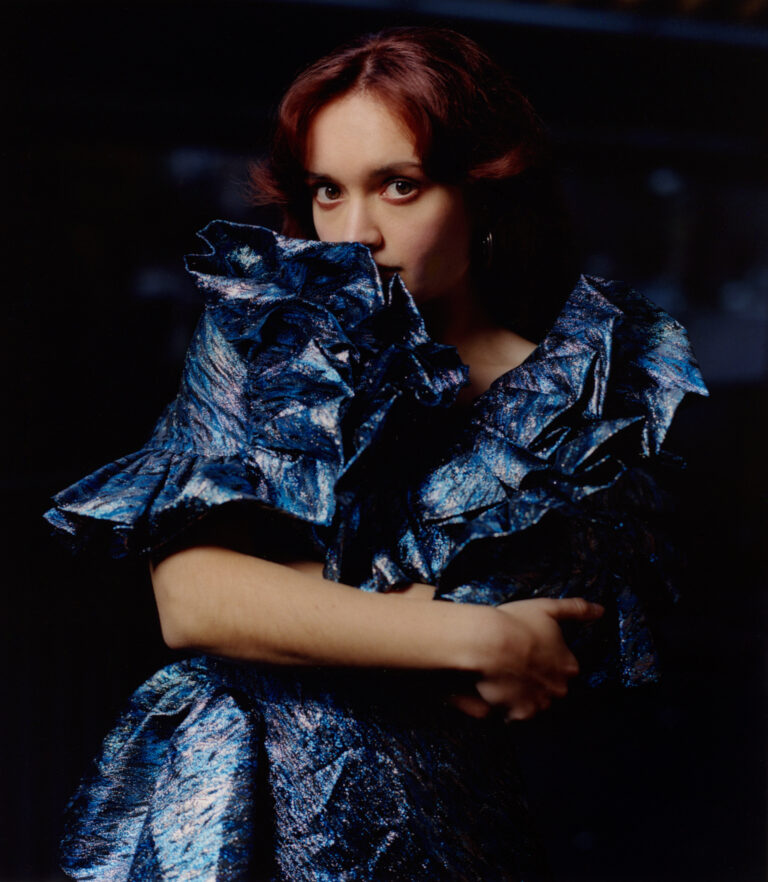
How did practicing music with Riz affect your chemistry and character balance during filming? Have you ever been in a band or performed live music before? What music do you listen to?
I think it was the best thing for two actors to be able to bond. You immediately start on the back foot, without ego or pretense, as we’re trying to learn an instrument in an incredibly short time in order for it to be committed to film forever! So with that pressure that Darius cruelly put on us you suddenly feel closer and more akin, as you’re going through the same humbling experience. I haven’t been in a band before, this felt like a fast track into one after having just met Riz. Both of us balancing expectations and frustrations from the get go, being each other’s therapist.
The scene where Ruben Stone – Riz Ahmed – tells Lou in the trailer that he’s going deaf is so powerful, but done with such delicacy and authenticity. How were you able to prepare for this kind of extreme emotion?
I don’t have any formal training so I find it really difficult to use a technique or method to evoke emotion. We knew how pivotal this moment is in the story and how important it was to get it right. Luckily we’d lived this experience for three weeks by that point in the airstream, plus two months of rehearsals, so I felt close enough to Riz to feel the panic and fear he was emitting. It’s more of a guttural response for me rather than anything I can intellectualize. It all felt very real and very scary.
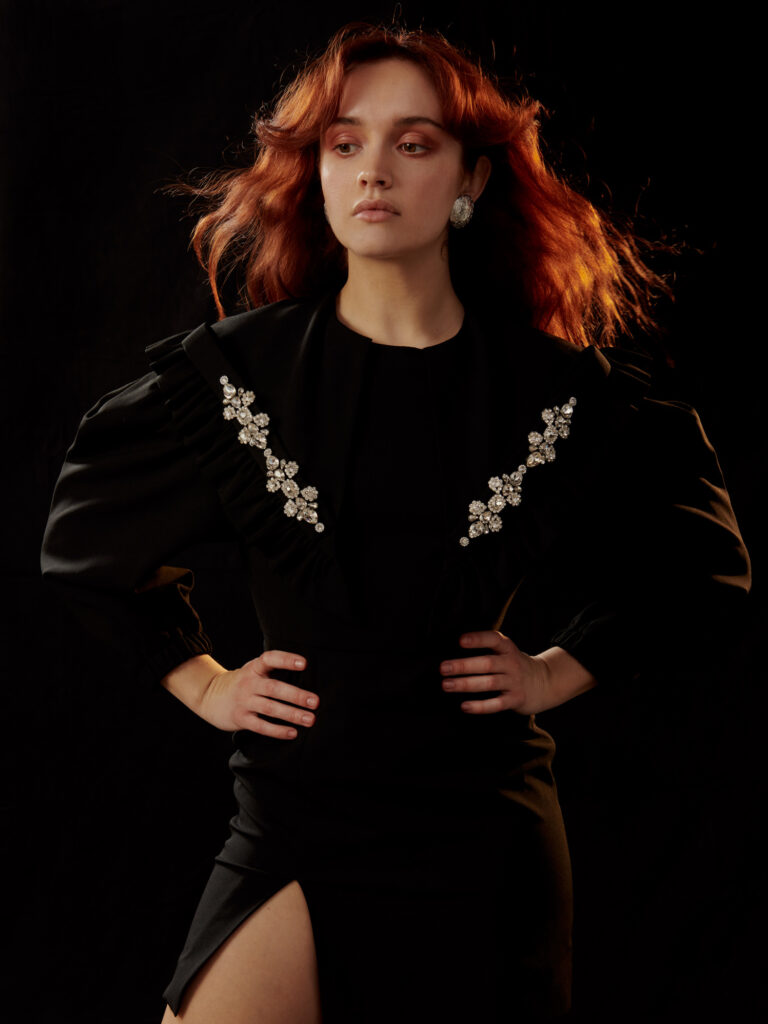
Little Fish, which is being described as a ‘science fiction romantic drama” film, was originally scheduled to premiere in April 2020 – and then the Covid lock-downs hit. When you heard the reports about Covid, you must have been struck by the film’s spooky prescience, with scenes of people wearing masks and socially distancing due to a mysterious pandemic. Exploring these personal losses, fears and grief can be painful to watch, but it very much needs to be reflected in our art. What kind of responses have you heard from people who are dealing with the pandemic and have seen Little Fish?
Oh God. I honestly have tried to distance myself from any reaction whatsoever about the film from people who have seen it. I feel uneasy about releasing a film with this subject matter when everyone is experiencing something similar on a daily basis – having had no distance from it at all yet. It’s completely up to the viewer if they want to watch this film, but can completely understand if they want to give it a big fat swerve. When we filmed Little Fish, it truly felt so “science-fiction”. Then a mere twelve months later the world was in lockdown. If I’d have known this was going to happen, I probably would have done better acting!
I was very moved by your scene with actress and singer SOKO – who I had the pleasure of working with on my audiobook – as Samantha, a friend of your character Emma. Mourning and grief have distanced them, but when they run into each other, the sense of their baffled pain is so very palpable – how were you able to prepare that scene?
Soko was really wonderful in that scene, and to work with. I’d been working on the script with writer Mattson Tomlin for a couple of years, since its genesis from a short story by Aja Gabel, so I knew every beat so intrinsically. It was a strange experience in general filming Little Fish, as it was the first time I’d used my own accent since I was 18. I’d come off of set and be like, “Fuck. I don’t think I did ANY acting then.” Maybe because it felt like the closest I’d come to playing myself.
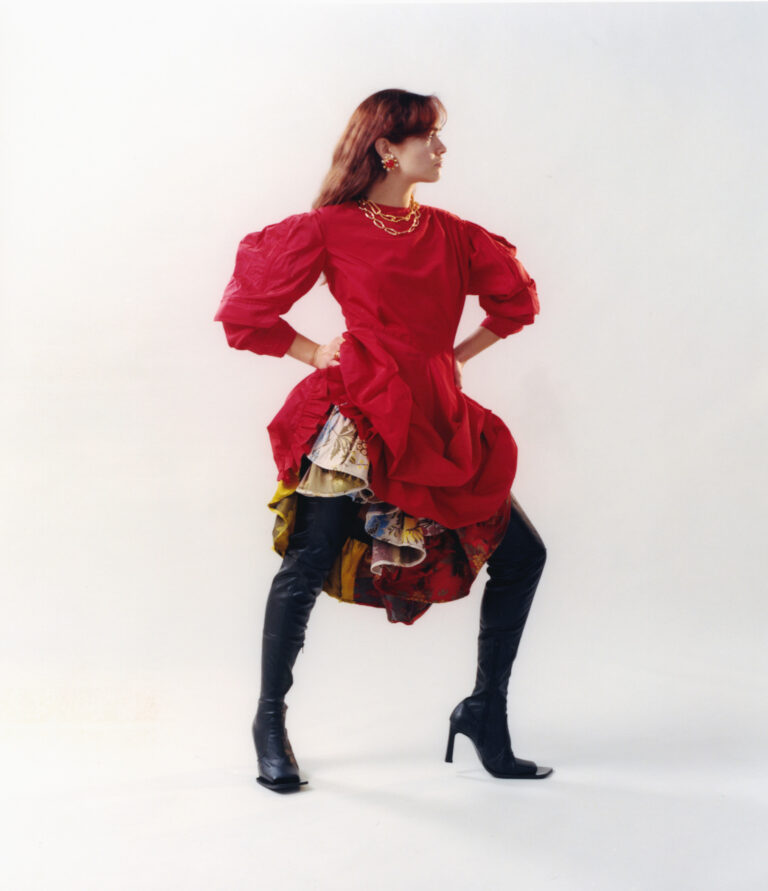
Actors who had careers before GOT have seemed more prepared to manage the impact of fame from the GOT franchise. How have you been able to prepare for that level of fame?
It’s not bloody happened yet!
(Laughter)
I loved your work with director Alfonso Gomez-Rejon in Me and Earl and the Dying Girl. Seeing that film and how he handles offbeat creative characters led me to work with him on bringing my story to a series form. You’ve collaborated with a range of directors from Steven Spielberg to Darius Marder, what makes you feel safest and most confident when working with a director?
Isn’t Alfonso just the most lovely, gorgeous human? I love him very much and I’m so indebted to him for giving me that part. It felt like the first time I was trusted to do some “proper acting”. What he shares with a lot of the directors I’ve worked with is an amazing sense of humor, the ability to be self-deprecating, and kindness. It’s a silly job at times and I think if you can appreciate that and have a laugh while you’re doing it, it makes the experience so much richer. When people aren’t governed in an environment that is more like a dictatorship than a collaboration, and a director respects each person’s job as much as the next person, that’s when you get the best out of people. Alfonso is a shining example of that.

